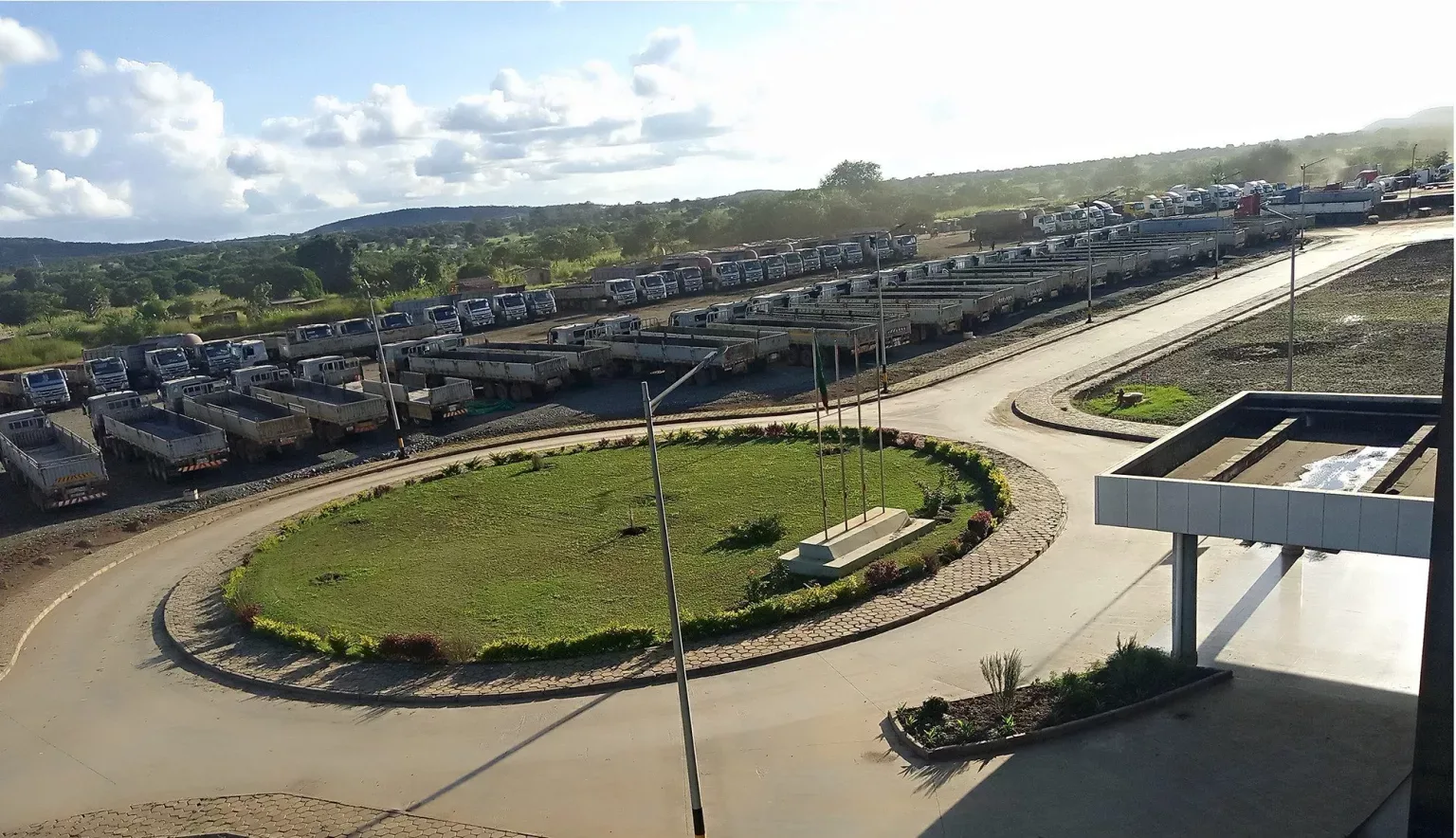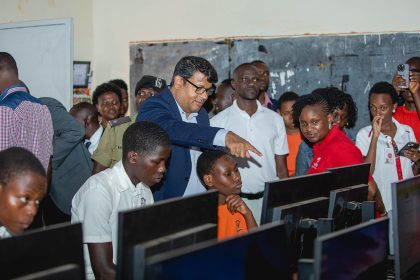By continuing to supply the construction industry with industry-leading cement products, Dangote Cement Zambia is able to build a lasting legacy in the country’s Copperbelt province.
DELIVERING EXCELLENCE, ENABLING EMPOWERMENT
The year 2011 marked a major breakthrough in the development of Zambia.
After several years of impressive economic growth, averaging 7.4 percent a year between 2004 and 2014, the World Bank declared it a middle-income country, its copper mining and construction sectors contributing enormously to national GDP.
Indeed, investment in large-scale infrastructure projects is one of Zambia’s key strategies to fuel economic growth, the building sector witnessing something of a boom in recent years, despite overall economic growth slowing to four percent in 2018 and two percent in 2019 if estimates from the African Development Bank are proven correct.
Since 2015, Dangote Cement Zambia has been a major supplier to the landlocked nation’s construction market.
Part of the Dangote Cement family, the division is one of 10 country-based operations which between them form West Africa’s leading cement producer, turning over in excess of $2.2 billion and providing employment for 24,000 people.
And the Zambia business hit the local market at just the right time, although the sector has reached an important crossroads according to Country Head and CEO Agostinho Henriques.
“The cement industry in Zambia is going through a challenging period of time,” he says. “We have enjoyed a boom in the construction industry over the last two years that allowed the sector to work with high occupancy rates, but since the last quarter of 2019 we saw a clear downtrend in the volumes sold.
“The boom was based on government debt that fuelled big infrastructure projects – however, right now, the Zambian government is rethinking its strategy and putting on hold new projects. Therefore, in a country with an overcapacity of two million tonnes of cement, we are seeing toughening competition for market share.”
Henriques arrived at the company in 2019, having served as Chief Financial Officer for Dangote Cement Senegal and CEO of Volvo’s Mozambique business since 2015.
Raised and educated in Portugal, he was destined to work abroad after beginning his professional working life at the world’s leading cork producer Group Amorim, a tenure which the multilingual executive describes as the perfect springboard to an international career.
“In 2007 I made my entrance into the cement world when I joined Secil Group,” Henriques recalls. “With them I participated in two big projects in Lebanon and in Tunisia, and this adaption to diverse multicultural environments is what I believe pushed Dangote to invite me into their Pan African organisation.”
BUILT ON QUALITY
And, having been at the helm in Zambia since October last year, he has witnessed enough to be optimistic about the prospects for Dangote and the national cement industry more widely.
“We are optimistic in the long term,” he continues. “The cement consumption per capita in Zambia is less than 90 kilos, one of the lowest in the world. Our industry is closely linked with the economic performance of the country, so consequently in the short term we are expecting some challenges.
“But we expect after the 2021 Presidential election that there will be a new uptrend. Zambia will become the regional platform for the cement supply in the sub-region that includes Malawi, Burundi and Zimbabwe.”
Dangote is also very well-placed to compete for the tightening market share that Agostinho earlier referred to.
The Country Head and CEO outlines several pillars to the company’s strategy which has enabled it to differentiate itself from competitors, the first and most important being the production of a premium product at an affordable price.
Dangote’s cement, not only in Zambia but in all of its markets, is widely considered to be the best available, the Zambian plant producing 42.5R cement to compete against lower grade but more common 32.5R products.
It is located in Ndola in the country’s Copperbelt province, the main industrial heartland where the copper mining industry is based. Served by a formidable limestone reserve of more than 240 million tonnes, the facility is able to produce 1.5 million tonnes of cement a year thanks to the work of its 1,150 employees.
Major clients include importers from the likes of the DRC and wholesalers and retailers, a service which is also reliant on Dangote’s own transport fleet of 300 trucks, allowing products to reach their final destination in an efficient and accountable manner.
This prompts Henriques to praise the important role played by the firm’s network of suppliers and partners, companies without which it would not be able to operate smoothly on a day to day basis.
“We are a company that empowers local producers,” he says. “Therefore, the logistics chain is crucial for us. For example, we have to bring north 15,000 tonnes of coal per month, and our truck fleet can only transport 30 percent of those volumes.
“Therefore, we have put in place a partnership with Zambia Railways and several local transport companies to fulfil the remaining delivery requirements. And because Zambia is landlocked, we are also reliant on regional logistical routes to supply our plant with all of the spare parts that we cannot procure locally.”
Henriques highlights the importance of transporting coal to the plant in Ndola, something which he is actually hoping to reduce as the company further utilises the power of alternative fuels.
In a bid to reduce its carbon footprint, Dangote Cement Zambia is making use of other sources of energy, including sawdust, tyres, used oil and even damaged paper bags.
“We also decided to start the massive project of a tree plantation,” Henriques adds. “During the first few months of 2020, we already planted more than 5,000 trees as part of our strides to neutralise our carbon impact. We know that it’s a long and challenging path, but we are resolute about following it.”
Indeed, a major objective for the remainder of 2020 and beyond is to make further progress towards becoming a truly sustainable entity. Its target is to replace 15 percent of its coal consumption by 2021, and plant well in excess of 5,000 new trees a year for many years to come.
COMMUNITY CONSCIOUS
As well as operating with an environmentally sustainable mindset, the company is also serving as an important community contributor.
The most obvious means is through direct employment, with 95 percent of its workforce being Zambian nationals who have the opportunity to work their way up the organisation thanks to empowerment-based management succession programmes.
The Country Head and CEO is one of 34 expats at the firm. The others are responsible for key technical positions, half of which Henriques is aiming to have filled by Zambians by 2022.
This commitment is enshrined in a memorandum of understanding with the Chiefdom of Masaiti community, Dangote also helping to deliver socioeconomic prosperity in a number of other ways away from its business at the cement plant.
“We are fully engaged with the local community and have an annual corporate social responsibility plan to empower the surrounding area through social actions,” Henriques says. “These include community road repairs, water projects and supplying fertiliser to farmers, as well as school building works and other projects.”
As part of International Women’s Day celebrations, the company donated an assortment of products to a local cooperative group, as well as sanitary pads to secondary schoolgirls, many of whom lack access to such products meaning they often miss out on valuable time in class.
Dangote has also been responding to the outbreak of the coronavirus, helping the local community with sanitisation and providing educational sessions on how to safeguard against picking up COVID-19.
The outbreak has and will continue to provide challenges at a national and local level, and Henriques concludes by restating his admiration for the Zambian people and determination to improve lives.
“I would like to mention the resilience of the Zambian people,” he says. “They are at the heart of Africa continent, far away from the coast, but they see themselves has the true representatives of the African spirit capable of overcoming any difficulties.
“Dangote Cement Zambia wants to embrace that tenacity and work for a better society here in Ndola, nestled in this beautiful country.”































